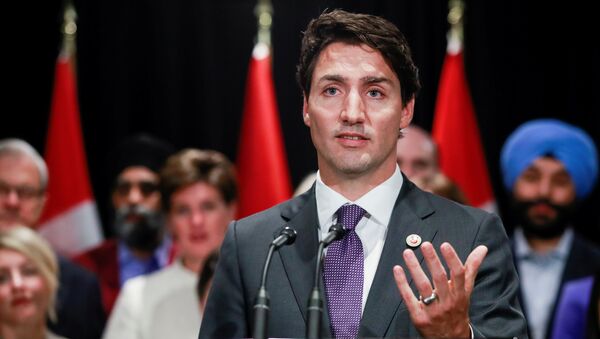The United States-Mexico-Canada Agreement (USMCA), which will replace the 1994 North American Free Trade Agreement (NAFTA), covers auto and agricultural tariffs, intellectual property rights, labor standards, and environmental protections, among other issues. The agreement must be ratified by the legislatures of each country to take effect.
The Canadian prime minister also stressed that he had a "very good conversation" with House Speaker Nancy Pelosi on the USMCA agreement, adding that Ottawa would not get involved in the US ratification process.
Trudeau also told reporters after meeting with Trump at the White House that Ottawa is set to develop a strategy on cross border collaboration on critical minerals.
"One of the things President Trump and I discussed during our meeting was the need to improve our collective mineral security. Critical minerals used for defense, manufacturing and high tech industries are essential to our economies and to our security. We agreed to develop a strategy to encourage more cross border collaboration and investments to ensure future competitiveness of our mineral industries and the safety and security of our supply chains", Trudeau said after his meeting on Thursday.
The Canadian prime minister also said that Trump had agreed that the United States and Canada should work as allies to resolve the situation regarding two Canadians detained in China.
Earlier in June, Canadian Transport Minister Marc Garneau hinted that Ottawa could ratify the USMCA sometime during the summer.
The USMCA bill was introduced earlier in the lower house of the Canadian parliament. After introducing the bill, Trudeau called on Parliament to support the passage of the draft legislation.
Mexico is the first country to ratify the new North American trade agreement. The deal was ratified in the Mexican senate on Wednesday.
In May, Canada lifted tariffs on US goods as a response to the lifting of tariffs on Canadian steel and aluminum.
In March 2018, Trump introduced 25 percent tariffs on steel imports and 10 percent tariffs on aluminum imports by invoking Section 232 of US trade law, citing alleged national security concerns. Canada fell under the new duties June 2018 and subsequently retaliated against the US by introducing its own duties on US goods.


